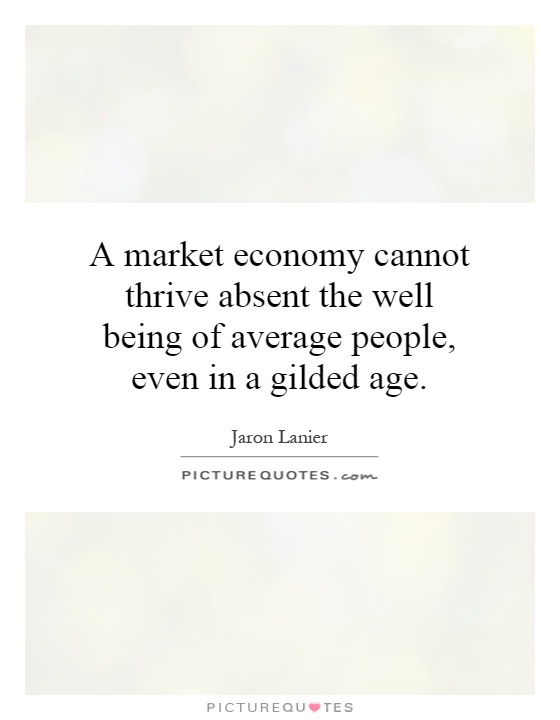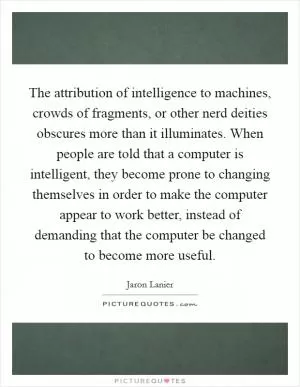A market economy cannot thrive absent the well being of average people, even in a gilded age

A market economy cannot thrive absent the well being of average people, even in a gilded age
Jaron Lanier, a renowned computer scientist and author, has been a vocal critic of the current state of the market economy, particularly in the context of the digital age. In his book "Who Owns the Future?", Lanier argues that the rise of digital technology and the internet has led to a concentration of wealth and power in the hands of a few tech giants, while average people are left struggling to make ends meet.Lanier's argument that a market economy cannot thrive absent the well-being of average people is particularly relevant in today's gilded age, where income inequality is at its highest levels since the Great Depression. The concentration of wealth in the hands of a few has led to a situation where the average person is struggling to keep up with the rising cost of living, while the wealthy elite continue to amass more and more wealth.
One of the key points that Lanier makes in his book is that the digital economy has created a situation where the value of individual contributions is being eroded. In the past, workers were able to earn a decent living by providing their skills and labor to companies in exchange for a fair wage. However, in the digital economy, companies are able to extract value from individuals without adequately compensating them for their contributions.
This has led to a situation where average people are struggling to make a living, while the tech giants continue to amass enormous profits. Lanier argues that this is unsustainable in the long run, as a market economy cannot thrive if the majority of people are struggling to make ends meet.












 Friendship Quotes
Friendship Quotes Love Quotes
Love Quotes Life Quotes
Life Quotes Funny Quotes
Funny Quotes Motivational Quotes
Motivational Quotes Inspirational Quotes
Inspirational Quotes